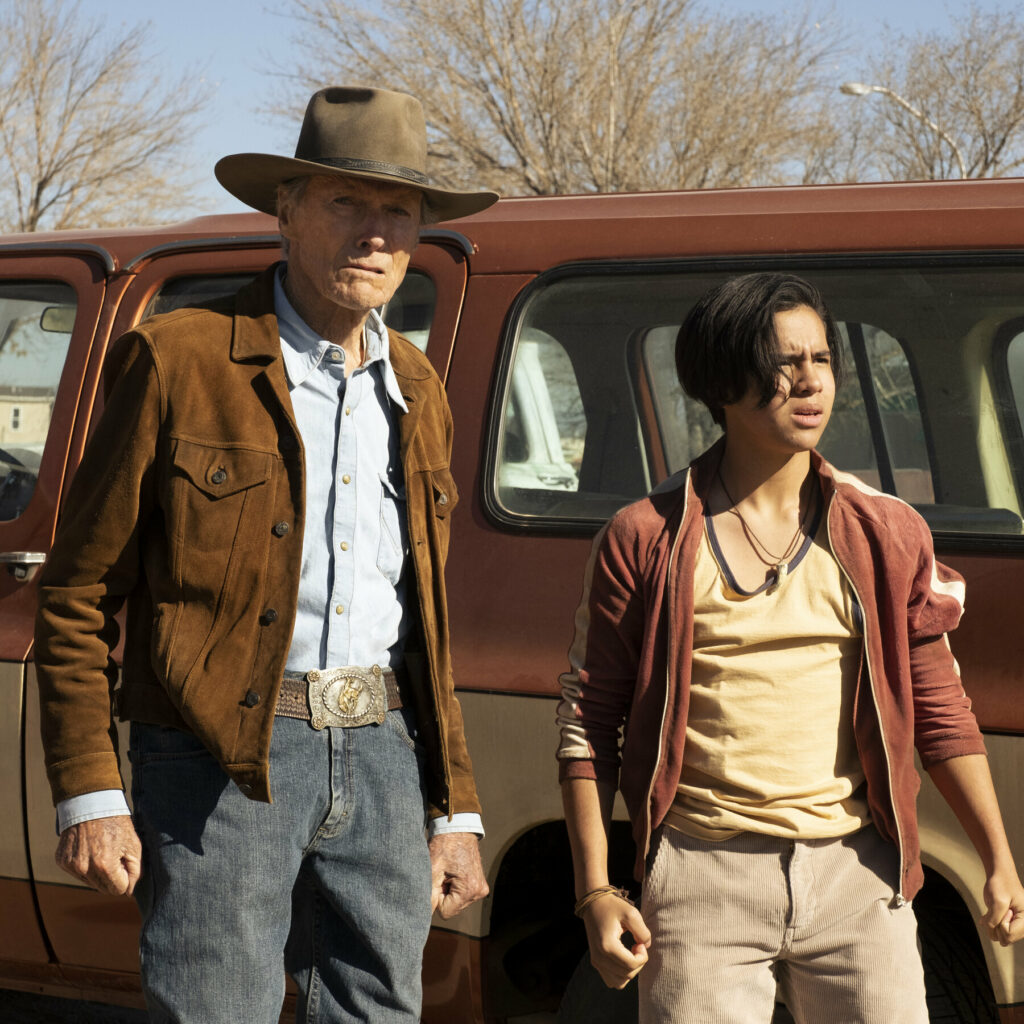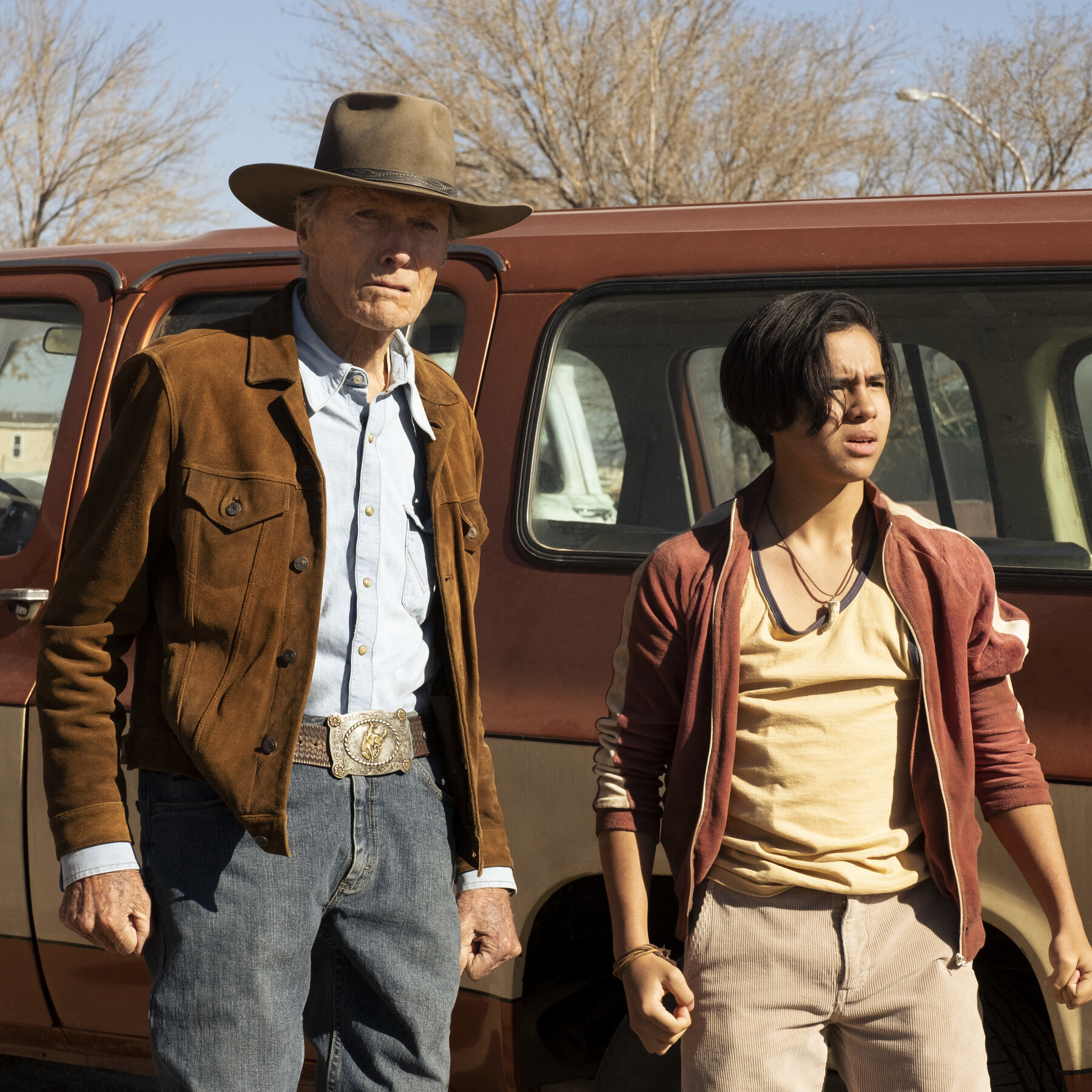How does the film stack up to the novel?

I experienced a pleasant surprise recently when I saw a “Stack-Up” review is listed in the category, “Visual Arts”. (I didn’t think my articles qualified as any art). Another surprise I experienced earlier, were headlines of legendary actor/director Clint Eastwood announcing his retirement. If that is the case, then his most recent film, “Cry Macho” would be his swansong.
The book
“Cry Macho” is a 1975 novel by screenwriter N. Richard Nash who is best known for scripting “The Rainmaker”; No, not the Francis Ford Coppola adaption of John Grisham’s legal drama, but a 1956 romance in which Burt Lancaster cons a drought-crippled town by pretending to attract rain clouds? This is the plot of a movie?
Nash wrote “Cry Macho” as a script to star Roy Scheider, an actor best known for playing law enforcement characters in films like, ‘The French Connection’, ‘The Seven-Ups’ and a little-known creature feature you’ve probably never heard of called ‘Jaws’. When this failed to be greenlit, Nash converted it to a novel.
This book is a mess. Written in a similar style to Ernest Hemingway in expressing slow-burning, grunge-laden anxiety of its protagonist while doing mundane household activities, the story concerns disgraced rodeo star Mike Milo stealing back his former employer’s son, Rafo, in Mexico mixed up in underground cockfights. The story pretends to be a redemptive tale, and it is in some respects but it’s also sheened with a 1970’s machismo cringe.
I wanted to like this book. I loved the writing style. It is told in the third person but spends so much time in Mike’s head that it may as well be the first person. I enjoyed Mike’s self-realization while being with the boy, going so far as to wanting to collect the bullets his inevitable pursuers fire at him just to protect the boy. However, that is where the compliments end.
Mike’s sexual detours made me wonder disgustedly why this wasn’t called “Cry Chad” instead of “Cry Macho”. He has several affairs including one with a woman with whom he’s separated on both sides of a language barrier, dumping her completely when she gets physically hurt (from her own adobe house). The book didn’t need to be 300 pages, and it could have benefitted instead as a short story. No wonder this took so long to be greenlit as a film, it’s pretty poor.
Review 1.5/5
The film
After seeing an interview in which Tom Hanks expressed Eastwood as a director “treats people like horses” and then seeing two horses on the cover of the “Cry Macho” novel, my belief in coincidence is dwindling. Having not been impressed by its promos featuring a culminating scatological term.
You think at 91, Clint Eastwood would be more mature than that, then being disgusted by the book, I realized Eastwood could turn some lemonade out of this lemon.
Eastwood plays Mike, employed by his former boss, played by the country legend who almost made skinny jeans on men an art form, Dwight Yoakam, to find his lost son. Along the way, Mike finds Rafo and spurns the seductions of the boy’s loose-cannon mother, (which is a first for any character I’ve seen Clint Eastwood play) thus fleeing her forces and racing to return Rafo to his father.
This film does what the book should have done primarily, focusing more on the relationship Mike has with Rafo and less on his other “activities.” The relationship between Mike and the boy is the highlight. The dialogue between the two is pretty clever, including a scene where Rafo tries to force Mike into paternity by threatening to lie to the authorities of being raped by Mike if he isn’t allowed to stay with him, faltering when Mike explains what kind of examination Rafo will undergo if they hear this story.
The film feels like a rushed production. Some of the acting is poor and Eastwood just isn’t convincing as a physical juggernaut or romantic lead anymore, especially when he punches down a 350-pound henchman with his bony, sinewy fist and romances a significantly younger senorita. Heaven (I mean Scientology) help Tom Cruise when he turns 90 and still plays superhuman 30-year-olds. This film has a heart in attempting inspiration without acknowledging its ridiculousness.
Review 2.5/5
Not as good as Eastwood’s other work, but a solid effort nonetheless. Personally, I don’t think this is Eastwood’s swansong; it’s his rooster-song. Okay, that sounded better in my head.
